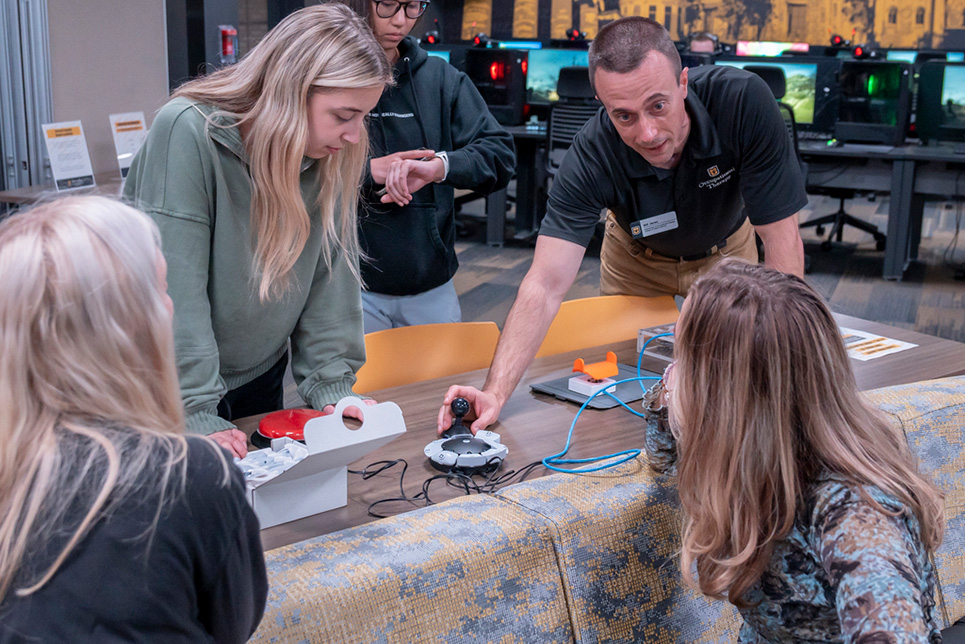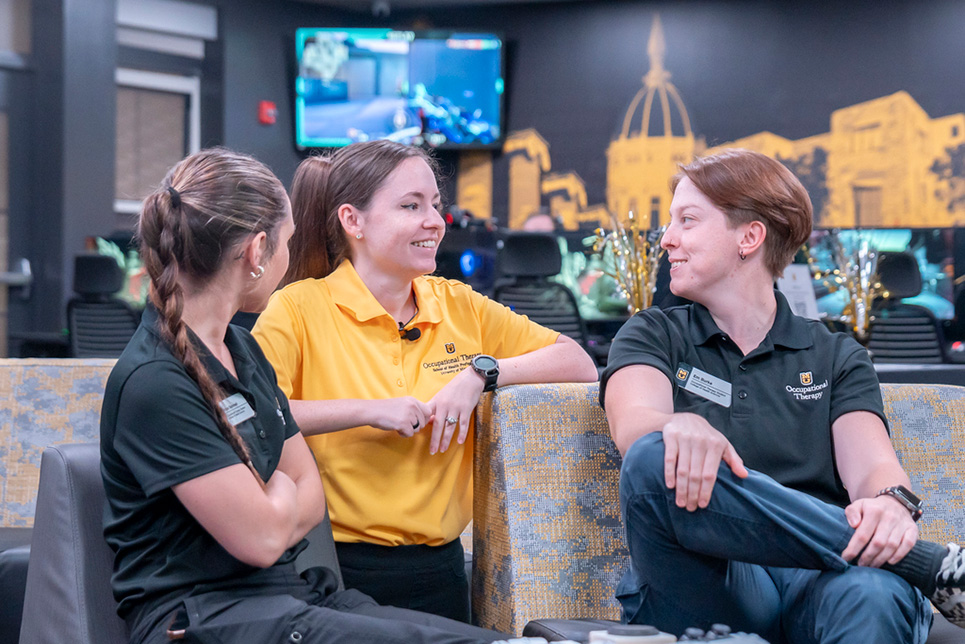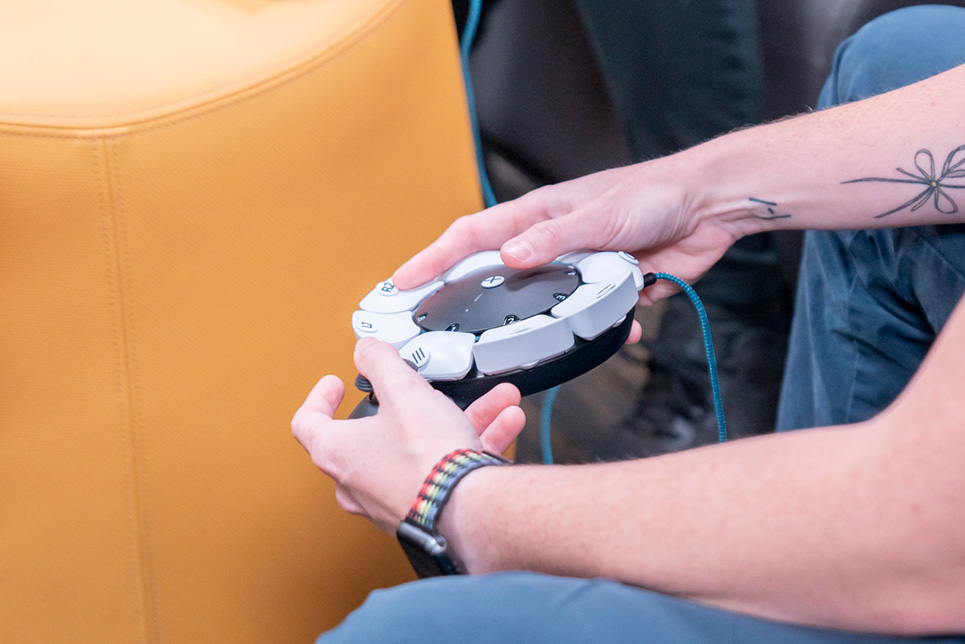Nov. 13, 2024

Story by Ryan Gauthier, rjgauthier@health.missouri.edu
When Rachel Fagan was 6 years old, she fell in love with gaming.
She and her mom would peruse the fluorescent aisles of Blockbuster to find the latest and greatest games — usually based on hit movies like Cars, The Incredibles or Harry Potter. Fagan was captivated by the escapism of video games, empowering her to fight bad guys as a superhero or even take on a life of crime without any of the real-world consequences.
Although those digital adventures were fantastic fun, Fagan said the bonding time with her mom over a shared activity was even more rewarding.
“I loved having my mom there while playing games,” she said. “It was a nice connection with her, and she also enjoyed playing with me.”
Fagan wants everyone to be able to share those experiences — regardless of physical ability.
The recent doctoral graduate from the Department of Occupational Therapy is working with Assistant Professor Bill Janes to make gaming accessible for people with disabilities. The duo has been working to investigate adaptive gaming devices and make the technology more available to Mizzou students.
“I’ve talked with students with disabilities who play video games and they’re like, ‘I have to hold the controller in this really crazy way, and it hurts after 10 minutes,’” Fagan said. “When I ask if they know about adaptive controllers, they often have never heard about them. A lot of communities are developed through gaming, and we want to create opportunities for everyone to get involved.”

Meaningful connections
Despite her early love of gaming, Fagan didn’t always see the connection between her hobby and career path in occupational therapy.
Janes informed Fagan he was looking for help with an adaptive gaming project, and she eagerly got involved as part of a class project. Her initial research suggested the reason more people with disabilities were not involved in gaming was largely due to a lack of awareness of adaptive gaming devices.
That class assignment quickly snowballed into a passion project for Fagan — and eventually became the capstone of her occupational therapy doctorate (OTD). Since then, a team of OTD and Occupational Therapy Assistant students have worked together to breathe life into the Mizzou Adaptive Gaming Program.
Fagan and Janes helped coordinate an adaptive gaming program open house at the MizzouRec Gaming Lounge in Center Hall this September as part of Disability Culture Month. Attendees could try the adaptive gaming equipment and learn more about the tools available to make gaming more accessible for people with disabilities. The group will continue to host similar open houses from 4-6 p.m. on Thursdays in the Gaming Lounge.
Adaptive gaming at Mizzou is part of a growing movement in the broader gaming community, Fagan said. After Microsoft launched the Xbox Adaptive Controller with input from occupational therapists, competitors Sony and Nintendo followed suit with their own versions.
Although the technology exists, it can be cost-prohibitive; the controllers can cost up to $250 apiece. By giving Mizzou students a free way to try the controllers, Fagan hopes to show more people that they can get into gaming.
“Even if it’s just something as simple as you get to pull the trigger and shoot while your friend aims and runs around and stuff, that’s so meaningful,” Fagan said. “You’re still participating, and it helps with connections and social engagement.”

Gaming for all abilities
The Mizzou Adaptive Gaming Program is funded primarily by the Department of Occupational Therapy, with additional support from the BeStrong29 Foundation and the MoBetter Foundation.
Janes said Mizzou is one of the first universities to have an adaptive gaming program on campus. To get the program off the ground quickly, Fagan connected with occupational therapists at Maryville University in St. Louis and AbilityKC in Kansas City to get up to speed on what is possible.
Mizzou’s adaptive gaming program perfectly complements the ongoing focus of Janes’ lab, which focuses on how assistive technology can help people engage in and participate in daily activities that most people might take for granted. Janes said his lab plans to broaden the project in the future, bringing adaptive gaming devices to other places both around campus and in mid-Missouri.
“It’s one of many programs we have where we’re trying to help people do their daily activities through low-cost and maker-type assistive technologies,” he said.
